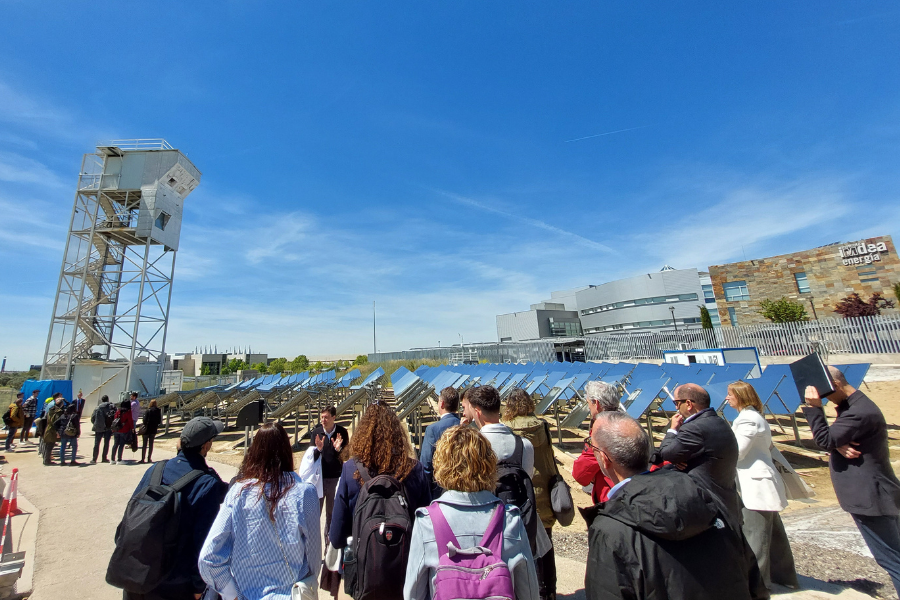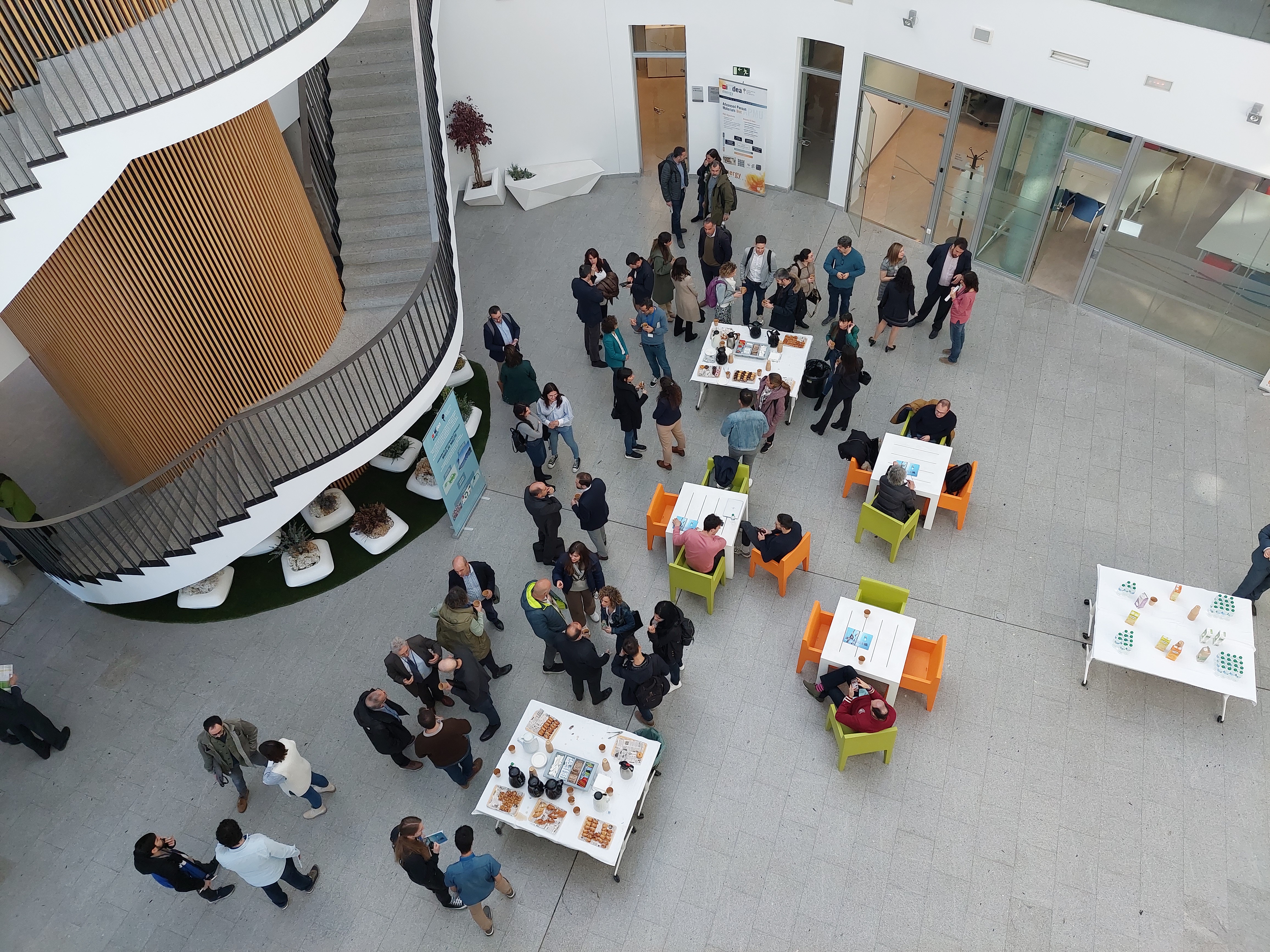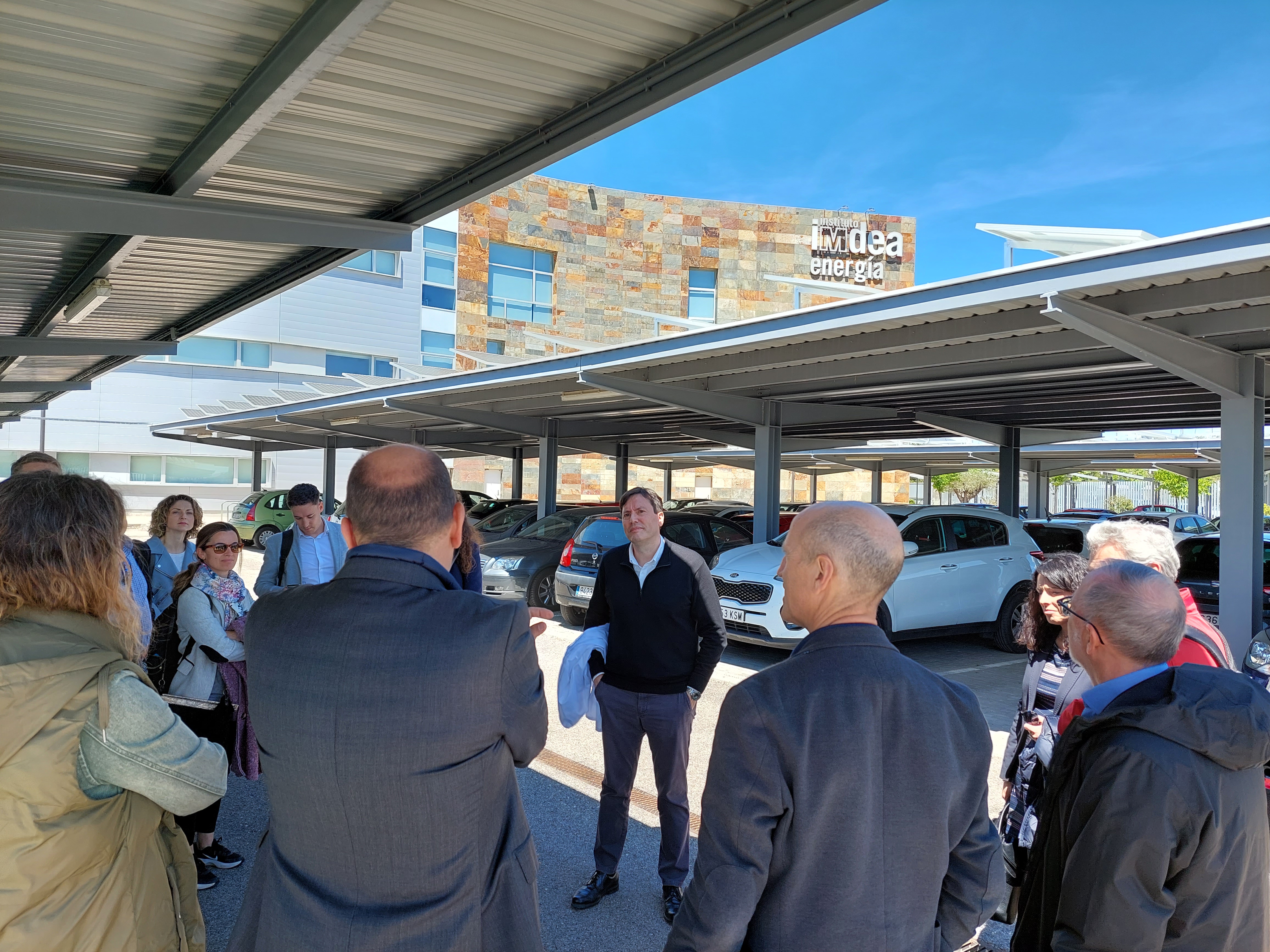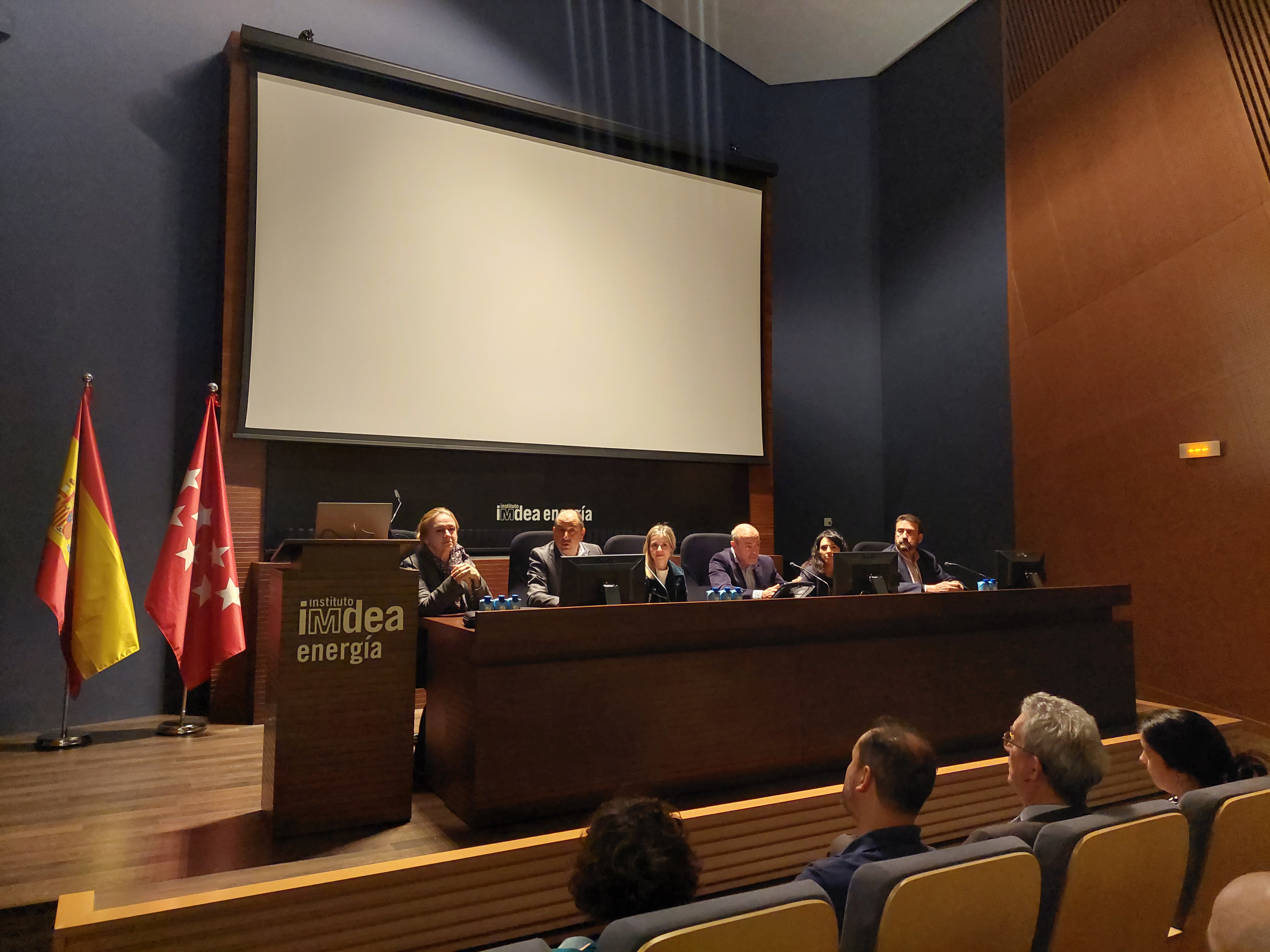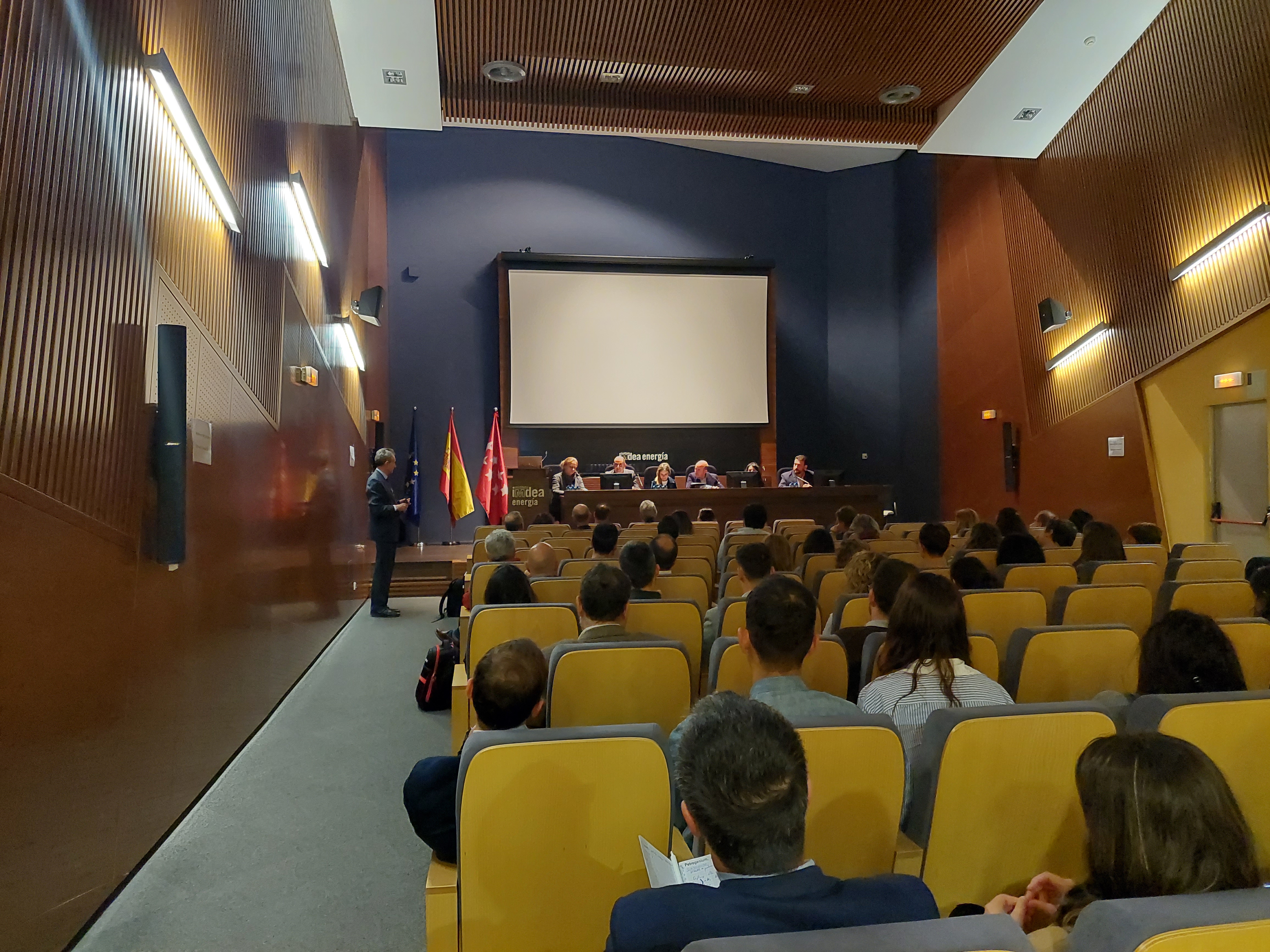IMDEA Energy brings together research and industry in a conference on sustainable fuels
On 24 April, Institute IMDEA Energía held the “Sustainable Fuels” conference, a meeting point for research and industry.
The day began with presentations by IMDEA Energía researchers on the development of Sustainable Aviation Fuels (SAF) to focus on a specific type of fuel, an example of the numerous projects that the Institute is working on. The speakers dealt specifically with the projects:
- Sun-to-Liquid II. Manuel Romero presented the objectives and first steps of this Horizon Europe project, which is being developed in IMDEA Energía’s solar field and is focused on increasing the performance of aviation paraffin production from CO2 and water using concentrated solar energy and preparing the commercial exploitation of solar thermochemical fuels.
- Bioctane. Horizon Europe project, which aims to convert organic waste from agriculture, industry and municipalities into aviation fuels by integrating biotechnological and thermochemical steps. The project coordinator, Patricia Pizarro, emphasised its novelty (the integration of catalytic conversion processes that had not been connected before or analysed to improve its efficiency and scalability in this specific context) and the challenges it addresses: new strategies for eco-engineering, continuous production of platform molecules, development of a continuous biotechnological/chemical hybrid process with TRL4 and catalysts with high selectivity to achieve a complete process to elucidate the techno-economic requirements for full market integration.
- Yaf. Elia Tomás presented this Horizon Europe network based on the fact that at least three of the certified PBS production routes (ATJ-SPK, HEFA-SPK and HFS-SIP) can be carried out by using yeast as cell factories and that it seeks to achieve solutions through the generation of carbon sources from bio-waste, the design of new catalysts, the use of yeast capabilities and recent molecular biology techniques for their modification.
- Madrid Vuela Sostenible. Hub of innovation and regional collaboration of the Community of Madrid Hub whose main objectives, according to the researcher Diego Iribarren, are to constitute a network of knowledge and technological capabilities, the development of production routes of PAS with different technological lines, the transition to a more sustainable energy model and the recovery of waste.
The vision of the industry was provided by different representatives of the value chain:
Repsol experts, Tamara Galindo and Juan Antonio Barrio, presented, respectively, the energy and environmental advantages of 100% renewable automotive fuels, which like circular materials are already a reality and the international Eureka Coreback project for the development of materials that make vehicles lighter and reduce consumption.
The CEO of Ingelia, Marisa Hernández, focused on how the company develops, produces and markets sustainable fuels and products with characteristics similar to those of coal from different types of organic waste.
Antonio Rodríguez, from Vertex Bionergy, explained the bioethanol production process and the impact it has on the decarbonisation of the automotive sector,
From the sustainable mobility platform, Move2Future, which integrates the entire value chain, its coordinator, Cecilia Medina, from Sernauto, spoke about the lines of R&D and the challenges of the sector.
The last speaker, Antonio Gómez, from CDTI, presented the international cooperation calls focused on the Eureka market.
The day ended with a lively debate, with questions from the audience, some of them about the development and production of sustainable fuels and their economic impact, or new technologies and how they affect the vehicle manufacturing industry, engines and their suppliers, as well as road, air, maritime and rail transport.
Attendees had the opportunity to visit IMDEA Energy’s solar field where sustainable aviation fuels are being developed from CO2 and water in the framework of the European Sun-to-Liquid II project.

